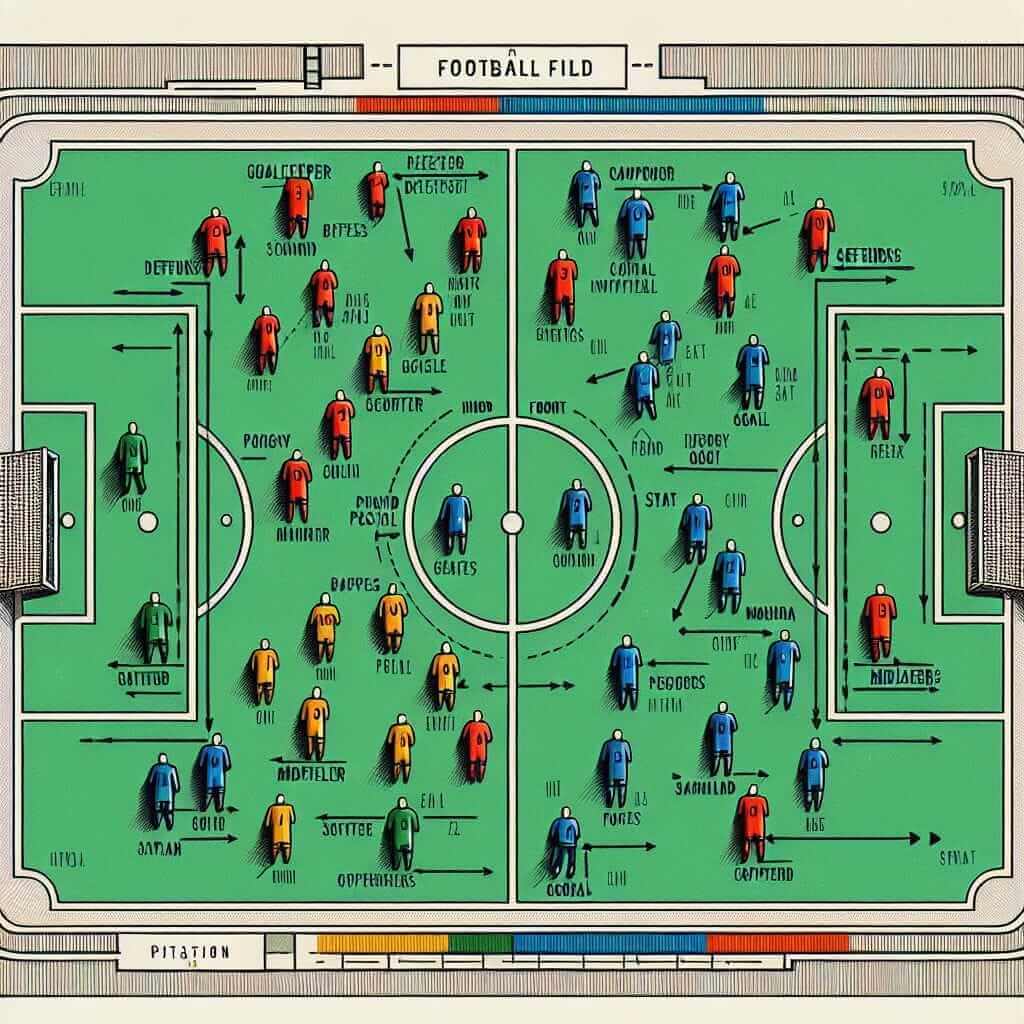As an experienced IELTS instructor, I often encounter students eager to boost their vocabulary, especially in specialized areas like sports. Understanding specific terminology can be invaluable for the listening and reading sections, and of course, can enhance your spoken and written responses. Today, we’ll tackle the exciting world of “football” (or “soccer” as it’s known in some regions) and equip you with the necessary vocabulary to succeed in your IELTS exam.
Why Football Vocabulary Matters for IELTS
You might be wondering, “Will I really need to discuss football in my IELTS exam?” While it’s not guaranteed, remember the test assesses your ability to understand and communicate in English across diverse topics. Familiarity with football vocabulary demonstrates:
- Range of Vocabulary: A key factor in achieving a higher band score is showcasing a wide and varied vocabulary.
- Contextual Understanding: Many English idioms and expressions originate from sports. Knowing football terms will help you grasp their figurative meanings.
- Global Awareness: Football is a global sport, and demonstrating knowledge in this area can benefit you in the speaking test when expressing opinions or sharing experiences.
Essential Football Terms and Their Usage
Let’s delve into some crucial football vocabulary, categorized for easy comprehension:
Gameplay:
- Match: A single game of football. E.g., “Did you watch the match yesterday? It was a thrilling encounter.”
- Pitch: The field where the game is played. E.g., “The pitch was muddy due to heavy rain.”
- Goal: The act of kicking or heading the ball into the opponent’s net. E.g., “He scored a spectacular goal from outside the penalty area.”
- Offside: A rule governing the positioning of attacking players. E.g., “The linesman raised his flag to signal an offside decision.”
- Penalty: A free shot awarded when a foul is committed inside the penalty area. E.g., “The striker was brought down, and the referee awarded a penalty.”
- Tackle: A challenge to win the ball from an opponent. E.g., “The defender made a crucial tackle to prevent a goal-scoring opportunity.”
Players and Positions:
- Goalkeeper: The player who defends the goal. E.g., “The goalkeeper made a stunning save to keep a clean sheet.”
- Defender: A player positioned in front of the goalkeeper to protect the goal. E.g., “The central defenders formed a solid partnership.”
- Midfielder: A player who operates between the defenders and forwards, connecting the play. E.g., “The midfielder controlled the tempo of the game with his passing.”
- Forward/Striker: A player whose primary role is to score goals. E.g., “The star forward is known for his clinical finishing.”
- Captain: The leader of the team, often wearing an armband for identification. E.g., “The captain lifted the trophy amidst joyous celebrations.”
- Substitute: A player who replaces another during the game. E.g., “The manager made a tactical substitution to inject fresh legs into the midfield.”
 Football Positions Diagram
Football Positions Diagram
Other Key Terms:
- Extra time: Additional playing time added at the end of a match if the score is tied. E.g., “The game went into extra time after a 1-1 draw.”
- Free kick: A direct or indirect kick awarded to a team following a foul by the opposition. E.g., “The free kick was taken quickly, catching the defenders off guard.”
- Corner kick: Awarded when the ball goes out of play over the goal line after last touching a defending player. E.g., “The winger delivered a dangerous corner kick into the box.”
- Yellow card: A caution given to a player by the referee for a foul. E.g., “The defender received a yellow card for a reckless challenge.”
- Red card: A dismissal given to a player, resulting in their removal from the game. E.g., “The midfielder was shown a straight red card for violent conduct.”
IELTS Exam Tips:
- Practice using these terms in context: Create your own sentences, write short paragraphs, or have conversations using football-related vocabulary.
- Listen to football commentaries: Pay attention to how commentators use language to describe the action.
- Read football news articles: This will expose you to a wider range of vocabulary and expressions.
- Don’t be afraid to use idioms: Expressions like “level playing field” or “kick off a discussion” can enhance your speaking and writing.
Conclusion
Mastering football vocabulary can be a real asset for your IELTS journey. By incorporating these terms into your learning, you’ll be better equipped to understand a wider range of English and confidently tackle the exam. Remember, practice is key! So, put on your metaphorical football boots and start scoring goals with your vocabulary!


